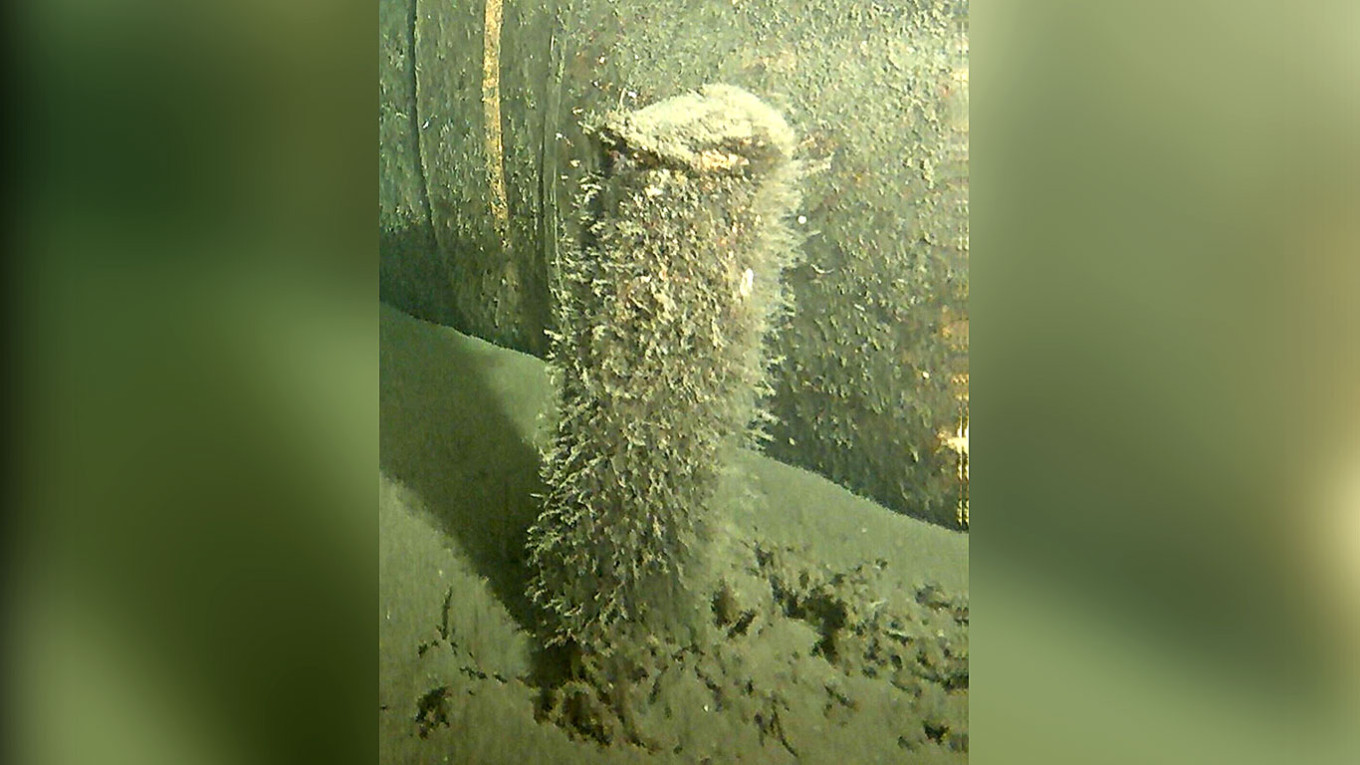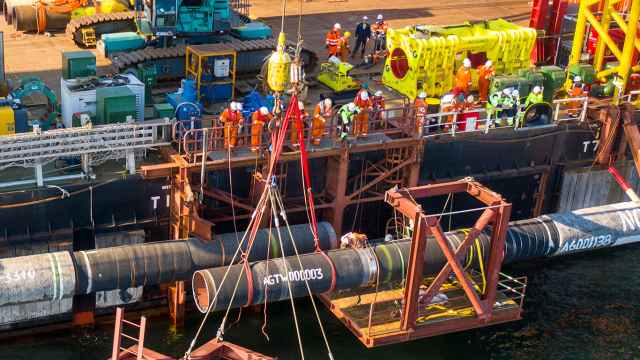Denmark has invited Russian energy giant Gazprom to help recover a mystery object that was spotted near the Nord Stream 2 gas pipeline six months after sections of it were sabotaged.
Russian President Vladimir Putin, who revealed the discovery of the object earlier this month, said experts believe that the object could be a signal antenna to activate an explosive in that part of the pipeline.
German, Swedish and Danish authorities are investigating the undersea explosions that sparked four leaks on the two Nord Stream pipelines in the Baltic Sea in September, seven months after Russia invaded Ukraine.
The Danish energy agency released a photo late Thursday of the cylindrical object standing near the Nord Stream 2 pipeline at the bottom of the sea.
The agency said it is "possible" that the object is a maritime smoke buoy, 40 centimeters tall and 10 centimeters wide, and that it "does not pose an immediate safety risk."
"With a view to further clarifying the nature of the object, Danish authorities have decided to salvage the object with assistance from the Danish Defense," it said in a statement.
The agency added that it was still waiting for a response from the pipeline's owner before starting the recovery operation.
Gazprom holds a majority stake in the twin pipelines, with the rest owned by German, Dutch, and French companies.
German prosecutors said earlier this month that in January investigators searched a ship suspected of having transported explosives used in the blasts.
Confirmation of the searches came after the New York Times reported that U.S. officials had seen new intelligence indicating that a "pro-Ukrainian group" was responsible for the sabotage.
The Ukrainian government denied involvement in the action, while the Kremlin rejected the Times report as a "diversion."
A Message from The Moscow Times:
Dear readers,
We are facing unprecedented challenges. Russia's Prosecutor General's Office has designated The Moscow Times as an "undesirable" organization, criminalizing our work and putting our staff at risk of prosecution. This follows our earlier unjust labeling as a "foreign agent."
These actions are direct attempts to silence independent journalism in Russia. The authorities claim our work "discredits the decisions of the Russian leadership." We see things differently: we strive to provide accurate, unbiased reporting on Russia.
We, the journalists of The Moscow Times, refuse to be silenced. But to continue our work, we need your help.
Your support, no matter how small, makes a world of difference. If you can, please support us monthly starting from just $2. It's quick to set up, and every contribution makes a significant impact.
By supporting The Moscow Times, you're defending open, independent journalism in the face of repression. Thank you for standing with us.
Remind me later.






